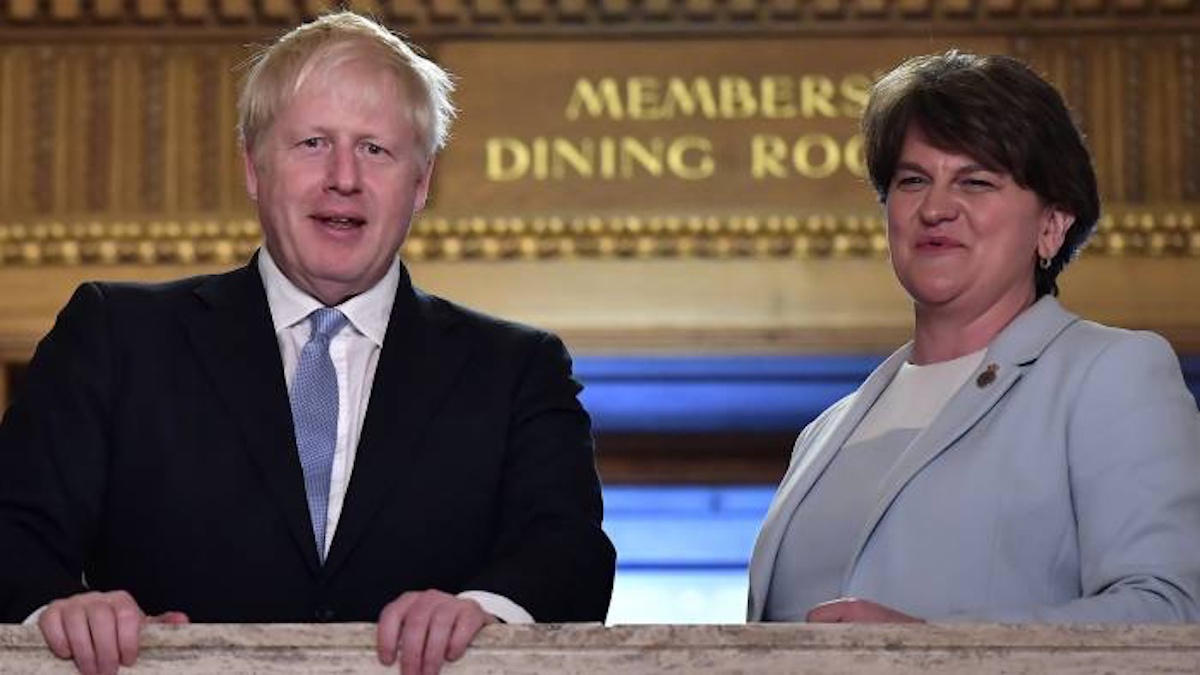
By Suzanne Breen (for the Independent)
The writing is on the wall for the future of the Union, but those for whom preserving it matters most are just too blind to see it.
If there was a border poll tomorrow, 48pc of people here would vote to remain in the UK and 41pc would choose Irish unity, with 11pc undecided. But that’s not the figure that should scare those who seek to maintain the status quo.
It’s that they lag so far behind with the under-45s. Some 57pc of 18-to 24-year-olds want a united Ireland with just 35pc opting for the Union. Among those aged 25-44, it’s 48pc to 42pc, according to LucidTalk’s poll for the Sunday Times.
Unionists need to swiftly move out of their comfort zone and start reaching out far beyond their traditional base.
The DUP has been the gift that keeps on giving for supporters of Irish unity in recent years.
Along with the Tories, they have alienated huge swathes of the population that they need to remain more neutral on the Union if it is to survive.
Any unionist who thinks Brexit hasn’t harmed their cause is delusional. English nationalism, assisted by absolute Ulster fools, has been the greatest friend imaginable to Irish republicanism.
Day and daily middle-class Catholics who were previously cultural nationalists, not political ones, now speak of the British government in a manner reminiscent of staunch Sinn Féin supporters at the height of the conflict.
In the months and years after the IRA ceasefire, Gerry Adams and Martin McGuinness predicted there would be a united Ireland by 2016, but no Sinn Féin strategy ever existed to deliver one.
Brexit and dumb DUP decisions have filled the void and created a momentum towards Irish unity.
On abortion, same-sex marriage, and recently integrated education, Sir Jeffrey Donaldson’s party has found itself increasingly friendless at Stormont.
It has driven socially liberal unionist voters into the arms of Alliance. Both nationalist parties have been far braver and bolder at tackling dinosaur attitudes in their ranks and moving with the times.
The DUP constantly talks about transformation and a positive, energetic and inclusive approach that will win new support for the Union.
Peter Robinson and Arlene Foster both spoke about that prospect. But it has never been anything more than chatter.
The party has proved incapable of taking baby steps, let alone waking the walk of winning fresh allies for the Union.
Demographic trends mean that clever unionist politicians would be killing nationalists with kindness and wooing those constitutionally unaligned. They should be doing everything possible to make Northern Ireland work and have everyone feel at home in it. Whether that’s an Irish Language Act or an East Belfast GAA pitch, it shouldn’t matter.
With Sinn Féin on 29pc to the DUP’s 21pc in May’s Assembly election, there has been increasing focus in some unionist circles on the need for unity.
Without it, there will never again be a unionist first minister, the argument goes. But a big, single pro-Union party — or electoral pacts — which retake seats from Sinn Féin may mean individual battles are won, but the war is still being lost.
On the Slugger O’Toole blog earlier this month, UUP leader Doug Beattie wrote about how relying on “narrow bases rather than on growing support for the broader pro-Union message” was flawed.
“Many of the electorate do not currently buy into political unionism, but they will buy into a prosperous, forward-looking Northern Ireland with a strong economy at its heart where respect and understanding are as important as identity and culture,” he said.
Unionism had a choice of continuing on a path of short-term tactical thinking by “focussing on the negatives and alienating the very people we need” to maintain the Union or it could do something different, Beattie stated.
History suggests that the chances of a smart choice are small. Unionism has always been better at looking for Lundies than chasing converts. Saving the Union constantly takes precedence over securing it.
The demographics are such that it might even be too late. Irish unity is certainly not inevitable, but never since the Northern Ireland state was established has its future looked so uncertain.
![[Irish Republican News]](https://republican-news.org/graphics/title_gifs/rn.gif)
![[Irish Republican News]](https://republican-news.org/graphics/title_gifs/harp.gif)

